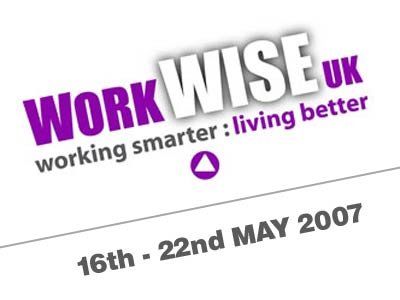Work Wise Week: Smarter working is good for the environment
As national flexible working week draws to a close, the focus turns to how we can help reduce damage to the environment by harnessing technology to aid more flexible working practices.


The penultimate day of Work Wise UK's national flexible working week focused on the environmental benefits that are on offer if more companies embrace smarter working practices.
It is now widely acknowledged that the supporting technology is there to facilitate working from home or elsewhere away from the office, and the productivity and social benefits are also clear.
However, it's now time that employers realised that more flexibility in where and when people work could also help the planet, according to Work Wise UK's chief executive Phil Flaxton.
"A key benefit of the introduction of new smarter working practices is that it leads to a decline in the overall amount of travel," he said.
"The requirement to travel to and from work at the same time to the same place every weekday, and also to travel many miles for meetings, is largely unnecessary considering the technology available, and the nature of the global market, today. Changing our working practices, and so our travel patterns, is one of the solutions to road congestion and public transport overcrowding, and probably the only one that is currently achievable."
Congestion has always been a problem in terms of adding time to commuters' journeys, but increasingly it is also damaging the atmosphere and the economy.
It is estimated that 25 million people in the UK commute to and from a fixed place of work, some 18 million of which travel by car and seven million by other modes of transport, according to the RAC Foundation, one of Work Wise UK's supporting partners.
Sign up today and you will receive a free copy of our Future Focus 2025 report - the leading guidance on AI, cybersecurity and other IT challenges as per 700+ senior executives
The recently-published Eddington Report also provides stark warnings that, if this upward trend continues, by 2025, congestion will result in 22 billion worth of wasted time in England alone.
Maggie has been a journalist since 1999, starting her career as an editorial assistant on then-weekly magazine Computing, before working her way up to senior reporter level. In 2006, just weeks before ITPro was launched, Maggie joined Dennis Publishing as a reporter. Having worked her way up to editor of ITPro, she was appointed group editor of CloudPro and ITPro in April 2012. She became the editorial director and took responsibility for ChannelPro, in 2016.
Her areas of particular interest, aside from cloud, include management and C-level issues, the business value of technology, green and environmental issues and careers to name but a few.
-
 Trump's AI executive order could leave US in a 'regulatory vacuum'
Trump's AI executive order could leave US in a 'regulatory vacuum'News Citing a "patchwork of 50 different regulatory regimes" and "ideological bias", President Trump wants rules to be set at a federal level
-
 TPUs: Google's home advantage
TPUs: Google's home advantageITPro Podcast How does TPU v7 stack up against Nvidia's latest chips – and can Google scale AI using only its own supply?
